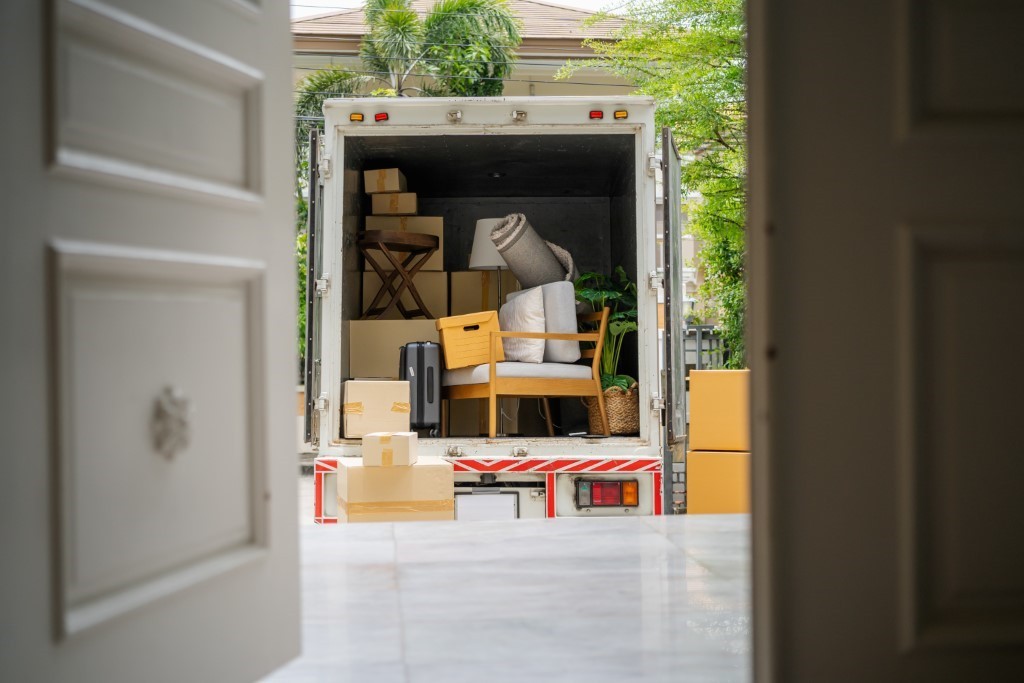Moving has a way of turning life upside down. Boxes pile up, schedules clash, and the pressure to get everything from point A to point B on time can feel overwhelming.
Besides movers and rental trucks, portable storage units are becoming popular lately. They’re flexible and convenient, but not always the right fit.
To find out, it helps to dig deeper into what it really offers, who benefits most, and where it might fall short.
What Portable Storage Actually Offers
It all starts with a unit delivered to your driveway or curb. Instead of rushing to load everything in a single day, you pack at your own pace.
Once you fill the portable storage containers, the company picks them up and stores them at their secure warehouse facility or delivers them to the new address. Some people even keep the units on-site for weeks if they need extra breathing room during home renovations or downsizing.
What makes portable storage units appealing is that the process falls somewhere between full DIY and hiring professionals. It removes the stress of driving a moving truck while letting you control your timeline. You can also select from various container sizes, so you don’t have to rent a large one to store a few small items.
Beyond moving, storage containers also come in handy during remodels, insurance claims, or military relocations. The uses stretch far beyond the standard ‘new house’ scenario, which makes them worth a closer look.
The Real Advantages Beyond Convenience
One of the biggest benefits of portable storage is how it cushions against the unknowns of moving. Closing dates change, renovations take longer than planned, or a landlord pushes back a move-in day. A container on standby means belongings aren’t left in limbo.
Budget-conscious movers also appreciate the cost transparency. Traditional movers sometimes tack on fees for extra hours, gas, or mileage, which can quickly inflate the bill. Renting portable storage units usually has a flat rate that’s easier to plan around.
Access is another factor. Some companies let customers access containers in storage to grab clothes, documents, or other items. Families can pack for a move over several days or weeks, especially with busy schedules and kids.
There’s also a lesser-discussed advantage: environmental efficiency. Instead of driving back and forth in a rental truck for multiple trips, one container delivery and pick-up can cut down on fuel use. It may not be the greenest solution, but it’s often lighter on emissions than piecemeal moving strategies.
The Limitations That Could Catch You Off Guard
Portable storage isn’t without its challenges, and some of them aren’t obvious at first glance. For starters, not every neighborhood allows large containers to sit in driveways or on the street. Homeowners’ associations, apartment complexes, or city regulations might require special permits. Lack of space is a common deal-breaker for city dwellers with no curb access.
While pricing is predictable, keeping portable moving containers longer than planned can add up. Those extra weeks can quickly make it less budget-friendly. Loading also remains a hurdle. Without movers, heavy or fragile items require extra care, equipment, or hired help.
Security in moving and storage can’t be overlooked either. Even with strong locks, leaving a container outside for weeks can raise security concerns. Insurance coverage may help, but it’s something to factor in. The weather is another overlooked issue. In harsh weather or floods, containers may be harder to access or less protected.
Who Portable Storage is Perfect For
While portable storage has drawbacks, it’s a perfect match for certain lifestyles. Busy families and professionals who simply don’t have the bandwidth to complete a move in one frantic weekend tend to find them invaluable. They’re also a natural fit for planners who prefer packing methodically and decluttering as they go.
Anyone in transition between homes or waiting for construction to finish often relies on portable storage containers to bridge the gap. Military families and frequent movers enjoy them because the process stays consistent each time. Renovators and downsizers also get good mileage out of them. A container provides flexible space without cramming garages or paying for short-term storage.
When Portable Storage Might Not Be the Right Fit
Portable moving containers aren’t the best solution in every situation. If a home doesn’t have a driveway or street space for a container, the option may be off the table entirely. A rental van might be faster and cheaper for small local moves with just a few items.
It’s not ideal for anyone unable to lift heavy items unless extra help is hired. And for those working on rigid schedules, full-service movers may still be the faster option.
Overlooked Uses and Creative Scenarios
What makes portable storage containers stand out is how versatile they can be beyond standard moves. After disasters, families often use containers to protect belongings until repairs are done. College students and snowbirds use containers to store or rotate possessions between seasons.
Small business owners also find value in them. A local landscaping company, for example, might use a container to store tools during the offseason. Event planners and nonprofits rent containers to handle overflow during big cleanouts. These creative uses highlight that portable storage isn’t just a moving tool, but a flexible resource that adapts to many needs.
Decision-Making Framework: Is It Right for You?
Asking a few key questions is the easiest way to determine whether a portable storage container is right for you.
- Do you need flexibility in your timeline?
- Do you have space for a container where you live?
- Are you comfortable handling the loading yourself, or willing to hire help if needed?
- Is predictable cost more important than sheer speed?
- Do you see value in having both moving and storage bundled into one option?
If the answer leans toward yes on most of these, portable storage solutions may be right for you. If space, mobility, or urgency are bigger concerns, a different moving strategy may suit you better. Thinking through these questions ahead of time prevents common mistakes when moving, reducing surprises down the road.
Wrapping Up
Portable storage won’t be perfect for every move, but it offers a balance of flexibility, control, and security for many households. It works best when timing is uncertain, storage is necessary, or the stress of a one-day move feels unmanageable.
This moving and storage solution can transform a chaotic experience into a far more manageable process. Portable storage options deserve serious consideration for anyone planning to move or renovate.


